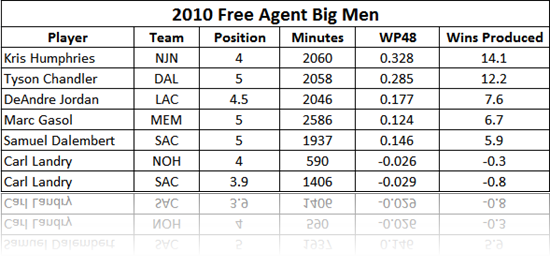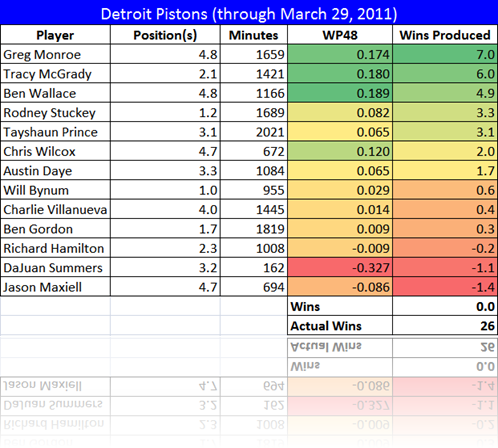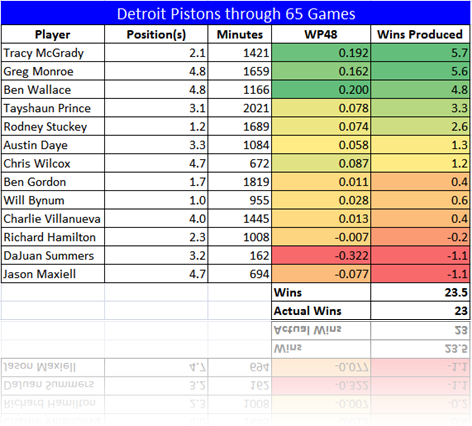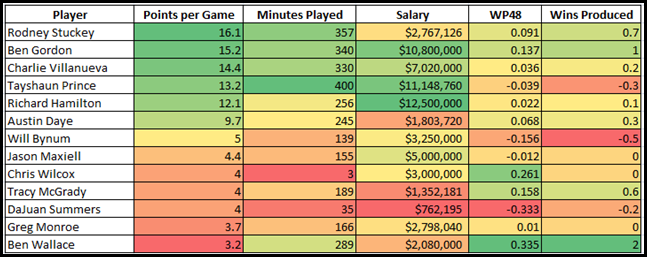If you haven’t heard yet, Pistons Coach John Kuester plans to shake 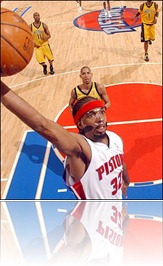 up the starting lineup beginning tonight at Toronto. The Pistons have deployed multiple starting lineups this season, so why is this newsworthy? This time, Kuester is benching Richard Hamilton, who has been the “masked man” of the franchise for the better part of a decade, in favor of Ben Gordon.
up the starting lineup beginning tonight at Toronto. The Pistons have deployed multiple starting lineups this season, so why is this newsworthy? This time, Kuester is benching Richard Hamilton, who has been the “masked man” of the franchise for the better part of a decade, in favor of Ben Gordon.
I have a special affection for Rip Hamilton. Some of you may know that I was fortunate enough to play college basketball at a small liberal arts school, and as a freshman, I was struggling to figure out how I could improve my game so that I could contribute to my team. Over a holiday break, I asked my high school coach what he thought – and he told me to watch the way Rip Hamilton used screens to create space, both for himself but also for his teammates. And watch him intently I did, for hour after hour after hour. I modeled the way I tried to play on the court – using screens, moving without the ball, etc. – after the way he did. Naturally through this process, I became a Rip fan.
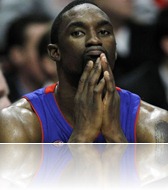 So like many Pistons fans, this news is bitter sweet. On the one hand, it’s another door closing on the old era that we cherish so dearly. On the other hand, this appears to be the right move for the present and the future. Put simply, at this point in their respective careers, Ben Gordon is the better player and appears to be the best option for the Pistons at starting SG.
So like many Pistons fans, this news is bitter sweet. On the one hand, it’s another door closing on the old era that we cherish so dearly. On the other hand, this appears to be the right move for the present and the future. Put simply, at this point in their respective careers, Ben Gordon is the better player and appears to be the best option for the Pistons at starting SG.
This appears to be the consensus of conventional wisdom, and in the case of Hamilton vs. Gordon, the Wins Produced numbers agree. Here are the numbers through 28 games:

With Gordon now the starter, what can Pistons fans expect?
Keith Langlois, editor of Pistons.com, offers the following comments:
If Gordon as a starter can provide 18 or 20 points consistently and efficiently, the Pistons will be better than a 9-19 team. Maybe good enough to chip away at .500 and put themselves back in the playoff chase. But if Hamilton is true to his word and embraces his new role, then perhaps the Pistons can be significantly better than that. […]
Twenty points isn’t a magical barometer, I suppose, but both Hamilton and Gordon are primarily scorers. That’s their best asset. If they can figure a way to get each of them to score 15 a game, at least, the Pistons probably could mount a playoff push. […] With neither playing performing at close to capacity, why not reverse their roles?
Best case, both of them start scoring consistently and efficiently. But if it even jolts one of them back on course, the Pistons will be ahead of where they’ve been.
To sum up, there are three things Keith is arguing here. First, both Gordon and Hamilton are underperforming (at least that’s how I read them being “off course” at least). Second, if either one of them is “jolted back on course” by this change, the Pistons will be better moving forward than they’ve been. Third, if this change causes them both to play the way they did on October 28, 2009 on a consistent basis, the Pistons could complete the season at a better than .500 clip.
Wow! The Pistons, who have won just 9 of 28 thus far, might be able to anticipate finishing the season by winning more than 26 of their remaining 54 games simply by swapping the roles of two shooting guards. That is truly remarkable. But do any of the arguments hold up to scrutiny?
Are Gordon and Hamilton underperforming?
Rip’s performance this season hasn’t been good, and there’s no question about that. However, what may be surprising to some Pistons fans is that Rip has never been very productive relative to Wins Produced. In fact, his career season with the Pistons was 2003-2004 (at age 25) when he produced 4.7 wins with a WP48 of .081 (average is .100). Yes, in his best season with the Pistons, Rip was “below average.” Furthermore, Rip is getting old, and in spite of working tirelessly on his conditioning, Rip can’t defy age indefinitely. So while his performance is declining, it’s not clear to me whether this is the natural result of age or the result of being assigned the wrong role in the rotation.
What about the newly-signed, highly-paid Ben Gordon? His minutes, shot attempts, and points per game have all dropped since joining the Pistons. That must be a result of having two good scorers at the same position, right? Well, not necessarily, according to the numbers. Ben Gordon’s career season came in 2008-2009 with the Chicago Bulls (at age 25) where he produced 5.6 wins with a WP40 of .090 – remarkably similar to Rip’s career season, isn’t it? And while he has produced better numbers in other seasons prior to that one as well, this season is not a dramatic departure from what Gordon has offered in the past. Yes, he’s not performing optimally, but it’s not as bad as many people suggest.
So, while it’s true that both players aren’t performing optimally, it’s not clear that the roles of the perspective players are to blame.
Will the Pistons be better if either one thrives in a new role?
This one’s easy. If either player improves, and if the other’s production doesn’t fall of a cliff completely, yes, the Pistons will better. That’s obvious. If your individual players play better, of course the team is better. The question is, how much better? Langlois is clearly thinking playoffs – finishing the season 26-26 for a total of 37 wins is likely to put the team in the Playoff hunt. All due respect to Keith, I don’t think this is very likely.
As a thought experiment, let’s imagine that moving Ben Gordon into the starting lineup does propel him back to his peak performance (.090 WP48). Let’s also imagine that Ben Gordon averages 36 minutes per game at SG (ignoring for the moment how that impacts Rip’s minutes and position). With 54 games left to be played, the Pistons could expect approximately 3.6 wins from Ben Gordon. Given the relatively unproductive cast of players the Pistons employ, I struggle to see how an additional 3-4 wins matters much. Instead of winning 26-27 games as the current numbers project, the Pistons could win 29-31. To my eye, that amounts to fewer lottery balls, not a playoff berth.
A Case Study: October 28, 2009
I recently argued that the Pistons aren’t very good because the Pistons aren’t very good. Yes, I think it’s that simple. We don’t have many productive players; therefore, we don’t win much.
It is true, however, that this collection of players has played very well together at times – and one need look no farther than the first game this team every played together as a group on October 28, 2009. That night, Hamilton scored 25 points on 53% shooting, and Ben Gordon scored 22 points on 58% shooting – a remarkable shooting performance from both, to be sure. Langlois seems to suggest that this should be the case study – both for the fans and perhaps also for the coaching staff as well – that models what Dumars envisioned for this team when he put it together. If Kuester can find a way to replicate this performance, the Pistons problems will all be solved, right?
Alas, replicating that performance has been difficult. As Keith observes,
Remarkably, there has been only one other game since the two became teammates that both scored over 20 points. The other came last Feb. 21 when the Pistons beat San Antonio in overtime.
The good news is the Pistons are undefeated when Hamilton and Gordon score 20-plus. The bad news is it’s happened twice in 62 games when they’ve both been available. The worse news is they’ve had four games already this season in the 25 they’ve both played when each one finished in single digits. Last year, there was only one such game in the 37 when both played.
To put this as simply as possible – Gordon and Hamilton are not going to shoot over 50% on a regular basis, let alone on the same night. And as a result, history will keep repeating itself – the nights that both players score a lot and efficiently will continue to be rare, regardless of who’s starting and who’s coming off the bench.
How do I know this? Because of the statistics that the NBA tracks, I can view their career shooting percentages and see with absolute clarity that they’ve never shot above 50% consistently (and most SGs in the NBA don’t either, not even the best ones). So as fun as that game was to watch back on October 28, 2009 – and yes, I did watch and enjoy it – I think it’s unlikely to expect many games like that in 2010-2011.
In other words, juggling the rotation in hopes of achieving, “If we could just play like we did that one night last season, we could turn this thing around!” doesn’t seem like a very good strategy.
Same Pieces, Same Puzzle
Unfortunately for the Pistons and their fans, I don’t think changing the starting Shooting Guard will have a dramatic impact. I do agree that it’s the right move, and it seems to be the natural next step in the transition from the old guard to the new, but ultimately, not that much is changing. One unproductive SG is being replaced by a slightly less unproductive SG, and the rest of the Pistons problems – specifically, poor shooting, poor defense, and poor rebounding – remain.
Kuester can arrange the pieces however he wants – and I don’t fault him for trying – but the puzzle when completed is going to look very much the same.

